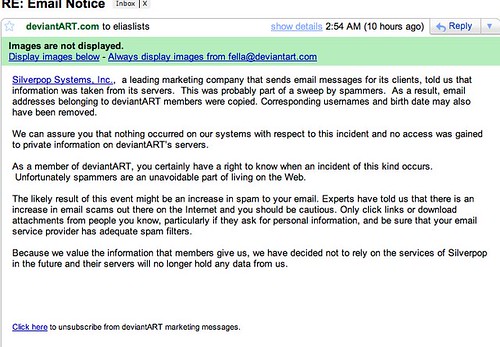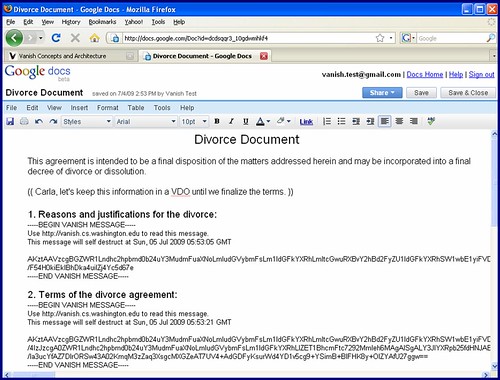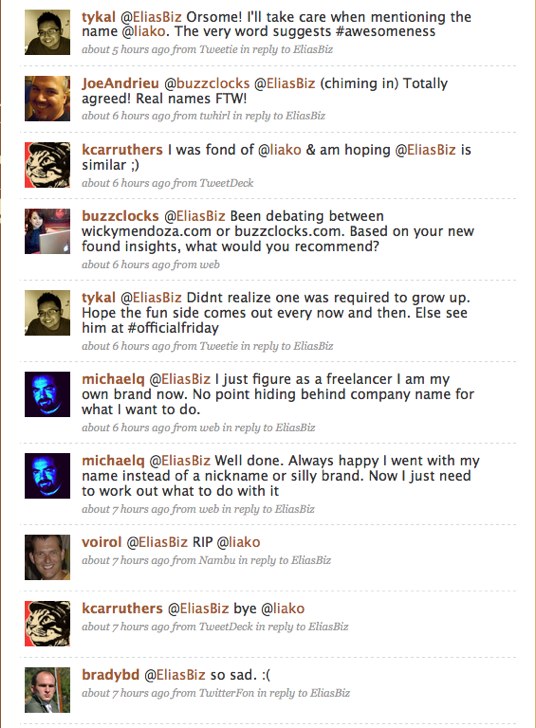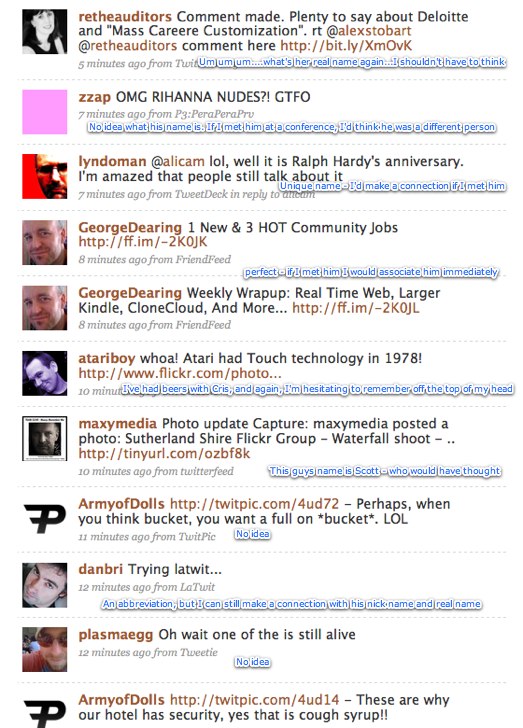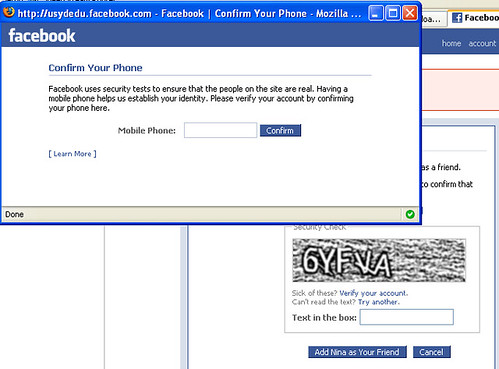Wow – now that was interesting. I’ve received spam messages through Facebook, but never this before. A friend who I’ve barely spoken to since 2003 (we used to work together) sent me a Facebook IM and we had a long discussion. She apparently needed me to urgently send her $600 as she was held up at gun point and lost everything.
You can read the below. As an epilogue, I wrote the below message to her as well as posting it on her wall. The wall post was deleted within minutes and I was removed as a friend, which confirmed my suspicions.
I am an experienced traveler so could sympathise with the situation but was fully aware of how con men operate as I’ve been done over before – and I could easily see someone falling for it. I’m sharing the below because this is only going to be more common in our society, as people sign into things like Facebook at internet cafes and don’t log out properly. Use the below as a guide if you ever get into this situation.
Remember that nothing is that urgent that it requires you to send a bank transfer from your online banking facility right now. Only ever send money via Western Union, which costs $70 but it’s quick, secure and truly global. I would know as well – I was in Peru with not even enough money to pay for my accommodation that night and barely for lunch. Western Union can deliver money to post offices, pharmacy’s as well as banks in minutes – they are literally everywhere – and they only provide the money (up to $1000) if there is a passport to validate. It’s a much better way to help out someone in need, as it eliminates the potential for fraud.
———————————
Rhiannon,
We’ve been chatting on Facebook chat. You’ve got $800, so that means you are not in an immediate emergency of not having somewhere to eat, drink and sleep. So you’ve got a few days leeway, that’s good.
But it’s easy to hack a persons facebook account, and I won’t know if it is genuinely you until I speak to you on the phone.
I will help but other than calling family, you need to consider
– talking to the consular which has a 24 hour hotline. You won’t get money but they will help you
– calling your credit card company. They will issue you emergency cash and an emergency credit card.
I am not going to transfer money from my bank account and will only do it with Western Union – as they can confirm your identity with a passport. I am also not going to wire the money over until you’ve exausted the other options I’ve listed above as I’ve done it in the past before and it reduces scope for potential fraud and burden on other people.
I’m sorry if this is genuinely you reaching out, but I am advanced with my knowledge about internet security, and this could very typically be an example of some prick taking advantage of your account which you forgot to sign out from in an Internet cafe which quite frankly I am highly suspicious of because there is evidence to support that.
I am sending this message because you will get it through your e-mail account which is seperately secured. I am also posting on your wall so your other friends can see what we discussed. Hopefully you won’t delete it, because that will prove this is a phishing scam and I will monitor so as to inform Facebook what’s happening to prevent any fraud from happening.
———————————
8:38pm Rhiannon
Hi
8:38pm Elias
Hi!
8:39pm Rhiannon
I am stranded in london and i need your help
8:39pm Elias
ok, what can I do?
(and happy birthday :))
8:40pm Rhiannon
i was mugged at a gun point in Kentish town, it was a brutal experience, all cash i had on me were stolen and my credit card was collected too now i’m left with no money here. I need you to loan me some money to get a plane ticket
yea thanks
8:42pm Elias
How do I know this is Rhiannon?
It’s happened to me before and it sucks, so appreciate it if this is not a joke
8:43pm Rhiannon
what
Elias i would never you stranded in another country if you really needed my help
I am still in shock right now and i’ll apprecaite it if you can help me out
8:44pm Elias
call me on
or give me a number I can call you
8:45pm Elias
if you had a credit card, you are in luck because you can get emergency cash
8:45pm Rhiannon
i can’t make any calls right now
my phone was also stolen
8:46pm Elias
well give me a number to call you
8:46pm Rhiannon
I have been able to raise over $800 but i need $650 more to get the plane ticket back home,so please can you loan me some money till i get back home? i will pay you back as soon as i’m home..
8:47pm Elias
do you have your passport? and who is your credit card with?
8:50pm Rhiannon
yes i still have my passport but my creditcard was also stolen as well
8:50pm Elias
I understand that, but you can get $500 in emergency cash straight away and an amergecy card sent to you within 48 hours
8:50pm Rhiannon
I need you to loan me $650 to get the hell out of here
8:52pm Elias
ok, you are asking me to give you money despite me not speaking to you for over 4 years. but you are not answering any of my questions which could get you out of you situation without me having to give you money which I am not going to do because this is potentially someone that’s hacked into your account
8:53pm Rhiannon
wtf?
8:53pm Elias
who is your credit card with!
8:53pm Rhiannon
You work at Nick’s Seafood Restaurant from 2002 to 2003.
8:53pm Elias
what town are you in?
yes, my facebook profile says that
who was the manager at nicks?
8:55pm Rhiannon
i am in kentish town
9:11pm Elias
Rhiannon I want to help you, but need to speak on the phone. I can’t send money because it’s sunday night here, and I’m not confident about your identity right now. If you can find a number I will call you and see what I can do
9:14pm Rhiannon
Elias i don’t know what else you want me to tell you or how else you want me to prove myself to you
all i know is that if you were to be stranded in another country i wouldn’t even think of it twice before helping you out
Ofcourse you can have the money wired online .. you don’t have to fo to the bank
9:15pm Elias
Well I am still online talking to you, so clearly I’m not blowing you off. But I am not stupid either.
Find a phone, give me the number, and let’s chat
9:19pm Rhiannon
Hotel Manager’s # +447024019672
9:21pm Elias
the number is busy. I’ll keep trying
9:24pmRhiannon
ok
9:24pm Elias
what hotel? maybe i can call reception?
